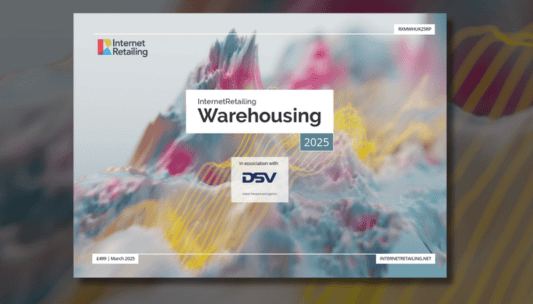Retailers tackling ongoing sales challenges and uncertainty caused by the cost of living crisis are laying the foundations for smarter, more sustainable supply chains, explains Ben Balfour, Chief Operating Officer at Advanced Supply Chain (ASC).
Confidence and cost cutting
The latest consumer confidence index makes dire reading for eCommerce retailers. Measures showing how Britons view their personal finances and wider economic prospects fell six points to minus 30 in July, according to GfK.
July’s index showed the first drop in confidence since January, and suggestions that consumer resilience is faltering. Despite rising living costs, levels of confidence had been improving during the first six months of 2023, providing some optimism for summer season trading and the all-important Black Friday and Christmas peak later this year.
These trading conditions have heightened the retailer focus on addressing margin dilution, making it more important than ever before. Shoppers are, understandingly, increasingly price sensitive, with low RSPs and value proving more and more influential during the purchasing of non-essentials. Flash sales, deep discounting and special offers have become commonplace, and are likely to remain a commanding part of the retail landscape as consumer confidence wavers.
Cutting prices puts increasing pressure on already tight margins and sharpens the focus on retail supply chain efficiencies. And, although this is a challenge, it can be positive for retailers – we’re seeing a growing trend of companies that are increasingly questioning supply chain performance and capabilities. They are putting their supply chain and stock inventory management strategies under the spotlight. This is prompting a long overdue review of outdated software and systems and proving hugely advantageous to generating efficiencies that benefit margins and sustainability.
Overhauling legacy supply chain software
In many cases, when we first look at retail supply chains, we find processes that are masking a whole host of possible performance gains and hidden opportunities. This is through no deliberate fault of a retailer and is typically a result of rapid growth, and systemic of FMCG. Unscheduled downtime, bottlenecks and delays are simply not an option when goods must be quickly moved through long and complex supply chains. This feeds a quick-fix culture, leading to supply chain management strategies and software defined by attempted upgrades and bolt-ons.
There is a fear that it is too time and resource intensive, and too disruptive, to fully review operations. Instead, supply chain technology and software will be repeatedly adapted. Strategies and solutions become outpaced by supply chain demands, and retailers are left with creaking legacy systems that appear to do a job but are far from optimised. This trend was accelerated by the global impacts of COVID, when supply chains had to adapt quickly to mitigate delays and rapidly rising operating costs.
Lessons learnt from the pandemic, as well as the prolonged uncertainty of the cost of living crisis is prompting a shift in attitudes. More and more retailers are proactively taking a step back to audit supply chain performance and invest in overhauling legacy systems that are no longer fit for purpose. The good news is, this is win-win from both an operational and a sales point of view.
A recent survey of 1,000 consumers and 100 UK retailers by ASC and Sapio research found that 37% of retailers reported consumers are more thoughtful about the volume of items they order, due to the environmental impact. When we spoke with consumers, almost a third told us they had ordered fewer items due to concerns about sustainability, while a quarter have even felt guilty about sending goods back to retailers. 31% of consumers are as concerned about the cost of sending products back, as they are about the environmental impact.
Despite financial worries and the growing influence of low prices, sustainability remains important to consumers. Retailers investing in their supply chains to generate efficiencies to address margin dilution, will also find they can optimise operations to reduce wastage, energy usage and carbon emissions.
Intelligent supply chains are shaped by strategic modelling, scenario planning, forecasting and processes that maximise the value and availability of stock inventory. This goes together with eliminating errors and inefficiencies, which will often help improve overall sustainability. The key for retailers is to ensure their supply chains are data rich and they have 100% visibility throughout the whole chain, from sourcing to point of sale, and back again.
Click here to download a copy of ASC’s latest eBook to uncover more research findings.







